Each week we highlight the noteworthy titles that have recently hit streaming platforms in the United States. Check out this week’s selections below and past round-ups here.
Days (Tsai Ming-liang)

Not a huge amount takes place at the beginning of Days. The opening exchanges are elemental: wind blows; rain patters; grass shivers; a boy in pink shorts plays with fire. But then not a huge amount happens after. The movie is the latest from director Tsai Ming-liang, a Malaysia-born filmmaker and master of slow burns; and a key figure in the second wave of Taiwanese New Cinema. What Tsai does do–and better than most–is long takes; beautiful compositions; urban bustle; gorgeous color; neon light–as well as capture touch, sexuality and the human body. – Rory O. (full review)
Where to Stream: MUBI (free for 30 days) (note: Tsai’s Afternoon is also streaming)
Fourteen (Dan Sallitt)
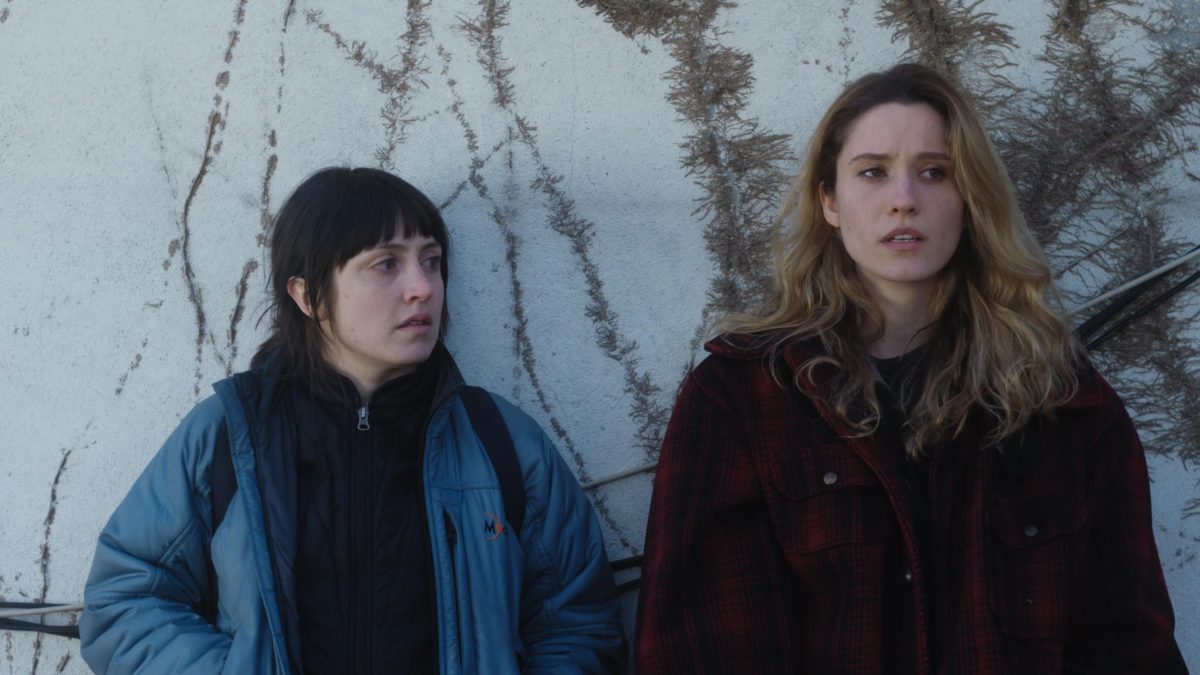
There is an uncomfortable, universal wound being picked at in Dan Sallitt’s latest film, regardless of which of its characters the viewer relates to more. The question is this: can we ever outgrow those close friends we looked up to in our younger years or are we destined to forever carry that complex around? This conundrum is what gnaws at the heart of Fourteen, an acutely observed and quietly expansive little film from the New York director of The Unspeakable Truth (another film with uncomfortable ideas about pseudo-siblinghood). This new feature concerns the alpha-beta (as it is perceived by the characters) relationship of two young women living in Brooklyn as, over the course of a decade or so, the beta friend adjusts to the pains and realizations of growing up and growing apart. – Rory O. (full review)
Where to Stream: MUBI (free for 30 days)
The French Dispatch (Wes Anderson)
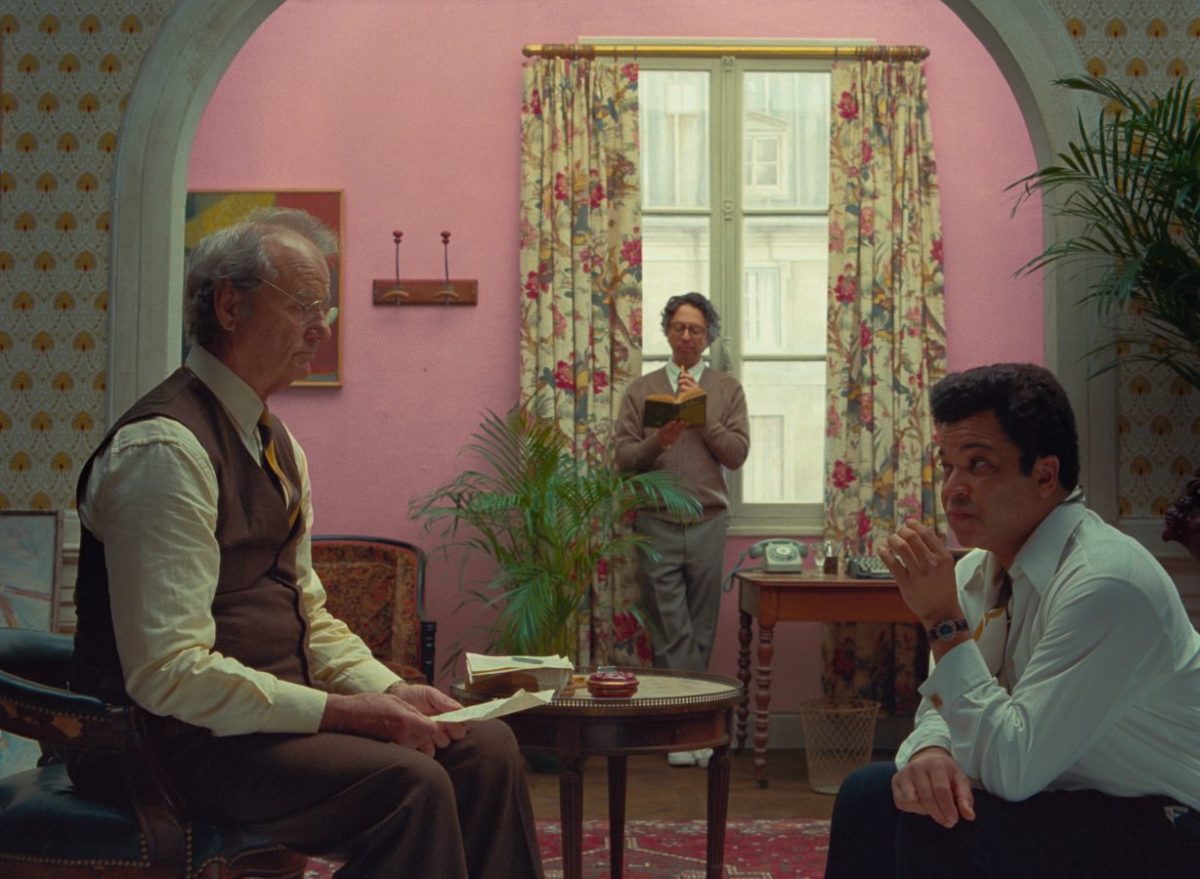
Scope around certain movie sites or Film Twitter and you may find reference to a slated upcoming DC comics adaptation title Justice League Dark—Guillermo del Toro and Doug Liman have been attached, so it’s probably not too embarrassing. The French Dispatch, in a similar naming fashion, could really be title Wes Anderson Dark, or even Wes Anderson After Dark. The film is primarily presented in black-and-white academy ratio; in the occasional color sequences its palette is still a grim, swirling miasma of moonlit tones. And the themes and subject matter couldn’t be accused of indulging anyone’s inner child, wonderful as the likes of Rushmore and Fantastic Mr. Fox remain. Isle of Dogs, flawed and sometimes misguided as it was, provided hints Anderson was growing tired of his patented, semi-cutesy aesthetic fussiness. The French Dispatch pleases as a larger fulfillment of this promise. – David K. (full review)
Where to Stream: VOD
The Hand of God (Paolo Sorrentino)
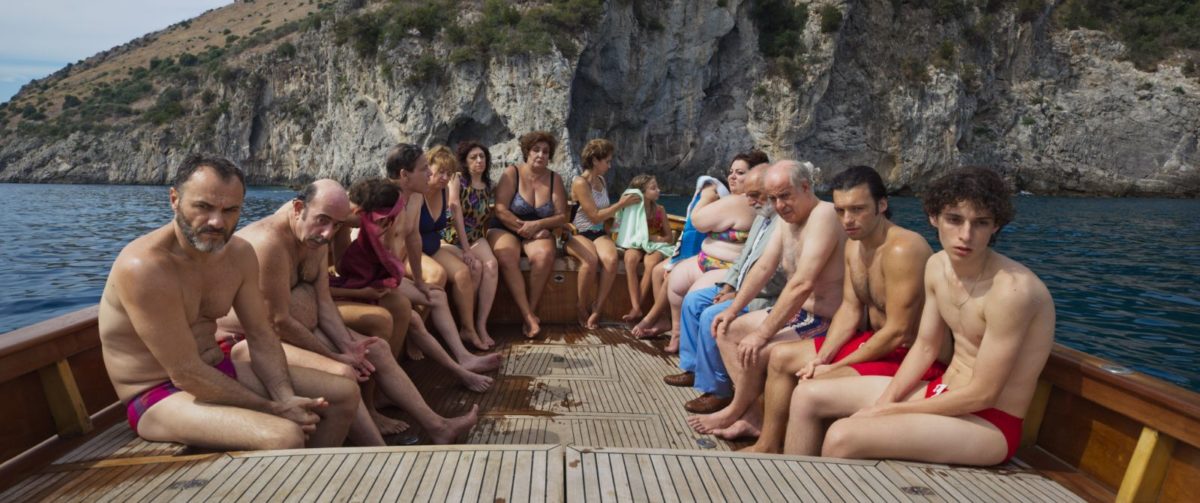
There is some very broad, bumptious humor in the initial scenes, clearly cathartic and meaningful for Sorrentino to recreate, but less rewarding perhaps for the audience to endure. Moving against the precedent, in fact, of Fellini’s Amarcord dream masque, Sorrentino plonks us right down in the middle of his alter-ego and lead character Fabiè’s (perm-haired newcomer Filippo Scotti) extended family dinner table for what feels like the real-time duration of a four-course Italian meal. The impulse is to duck and cover as tedious private jokes are shared between his communist-leaning banker father Saverio (typical Sorrentino axiom Toni Servillo), his caustic ma Maria (Teresa Saponangelo), and a bevy of interweaving aunts, uncles, grandparents and hangers-on, bobbing and weaving through the cramped apartment corridors with the tempo and mannerisms of a mediocre stage farce. A feeling of overcompensation reigns: Sorrentino is often far more canny in setting up the dramatic stakes of the first acts. – David K. (full review)
Where to Stream: Netflix
My Heart Can’t Beat Unless You Tell It To (Jonathan Cuartas)
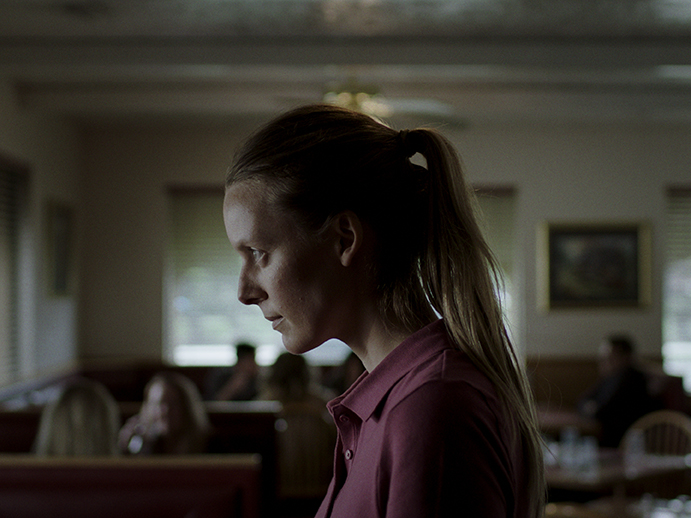
Landing somewhere between intense, realistic family drama and arthouse horror, Jonathan Cuartas’ My Heart Can’t Beat Unless You Tell it To is an oddly moving tale about social isolation, loneliness, and illness that resonates as a character study focused on the space of mourning. Dwight (Patrick Fugit) is a nightcrawler who spends his time hunting day laborers, the homeless, and other indigent persons living on the economic margins as a means of keeping his brother Thomas (Owen Campell) alive. Thomas, for all intents and purposes, is an undiagnosed vampire, warned by his waitress sister Jessie (Ingrid Sophie Schram) against leaving the house, especially during the day. – John F. (full review)
Where to Stream: Amazon Prime
The Novice (Lauren Hadaway)

There’s a difference between being the best and being the hardest worker. If you’re the best, you don’t always need to work. It’s natural. Alex Dall (Isabelle Fuhrman) describes the phenomenon perfectly about midway through Lauren Hadaway’s feature debut The Novice while shooting pool with potential love interest Dani (Dilone). She explains how she’s driven to beat the best rather than be the best. How she’s accepted the idea that she’ll always have to struggle and she’ll never achieve the pinnacle of whatever career, hobby, or sport she chooses. If she can beat the person who does, however, it will all be worth it. Alex will fight, fail, and kill herself to reach the top regardless of it lasting but an instant. It’s her compulsion. – Jared M. (full review)
Where to Stream: VOD
Street Gang: How We Got to Sesame Street (Marilyn Agrelo)
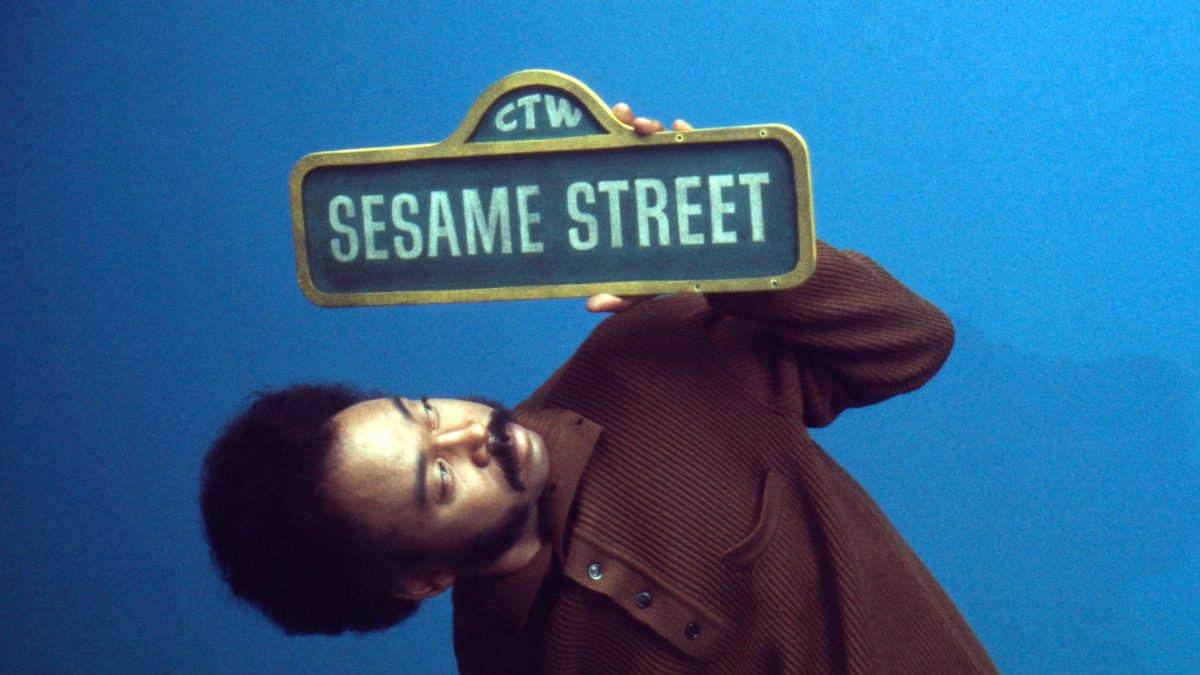
Sidestepping the curse that has befallen lesser behind-the-scenes documentaries taking on subjects with an immense archival body amassed over the course of decades, Marilyn Agrelo’s fascinating and well-constructed Street Gang: How We Got to Sesame Street is a focused look at the show’s origins before it became an international cultural juggernaut. Keying in primarily on the show’s first twenty years––including the development of the Children’s Television Workshop, whose $8 million dollar budget was funded partially by the US Department of Education––the film is an affectionate look at the power of TV to transform early childhood education, using Madison Avenue advertising techniques to teach the alphabet. – John F. (full review)
Where to Stream: HBO Max
Yakuza Princess (Vicente Amorim)
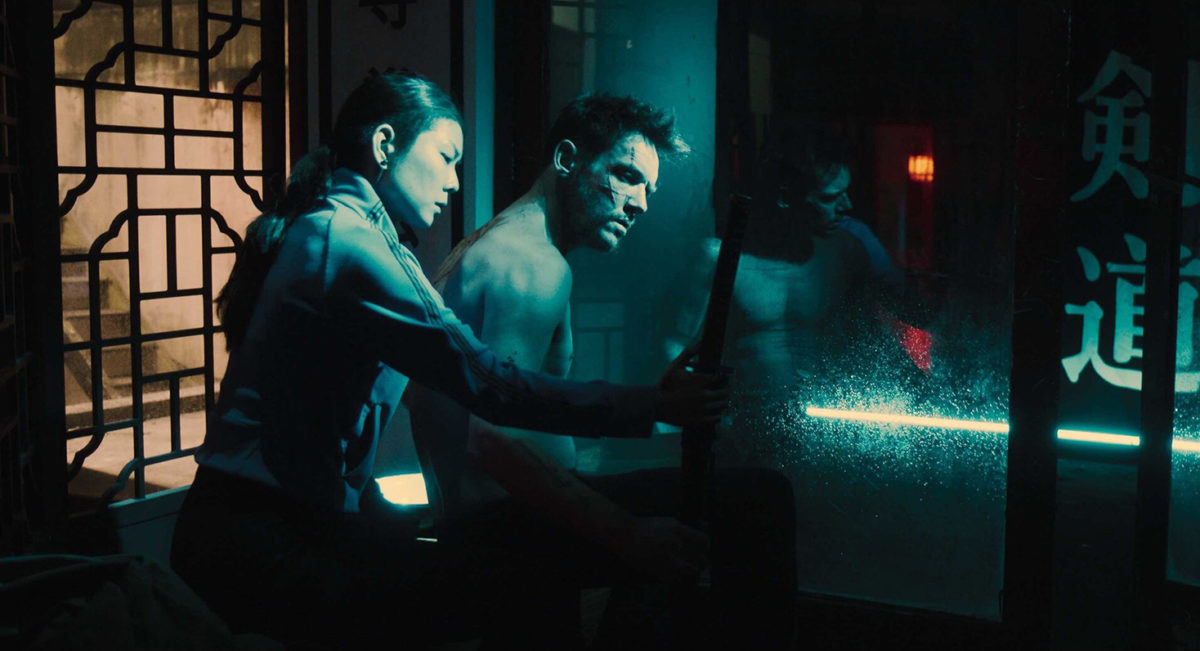
We enter 20 years into the past at a birthday party in Japan. This wealthy family spared no expense for the celebration but no amount of money can stop what’s coming. Swords are drawn, guns are fired, and soon enough everyone is dead—save a little girl taken from her mother’s lifeless arms. The assumption is that the victors have stolen her to nurture as their own before the inevitable discovery of her real heritage and subsequent desire for revenge. Learning the opposite to be true is thus a confusing hiccup once we fast-forward to present-day Brazil and find Akemi (Japanese singer-songwriter MASUMI) mourning the death of the man who raised her: a man she calls Grandfather. How did she get there? We’ll find out soon enough. – Jared M. (full review)
Where to Stream: Hulu
Voyage of Time: An IMAX Documentary (Terrence Malick)

At long last, Terrence Malick’s awe-inspiring documentary Voyage of Time will be able to be seen by more eyes. Premiering back in the fall of 2016 in two forms––a 45-minute, Brad Pitt-narrated version for IMAX and a feature-length version narrated by Cate Blanchett––the latter still hasn’t seen a proper U.S. release (I thankfully was able to catch it with a live orchestra a few years back at BAM), but the former got a small IMAX run. Now the Pitt-narrated version has received a digital premiere courtesy of MUBI in glorious 4K, arriving globally (excluding China, Japan, CIS, Baltics). Check our Rory O’Connor’s review of the feature-length version here. – Jordan R.
Where to Stream: MUBI (free for 30 days)
Also New to Streaming
Amazon Prime
MUBI (free for 30 days)
Contempt
Je t’aime moi non plus
Ali in Wonderland
Hulu
Materna (
